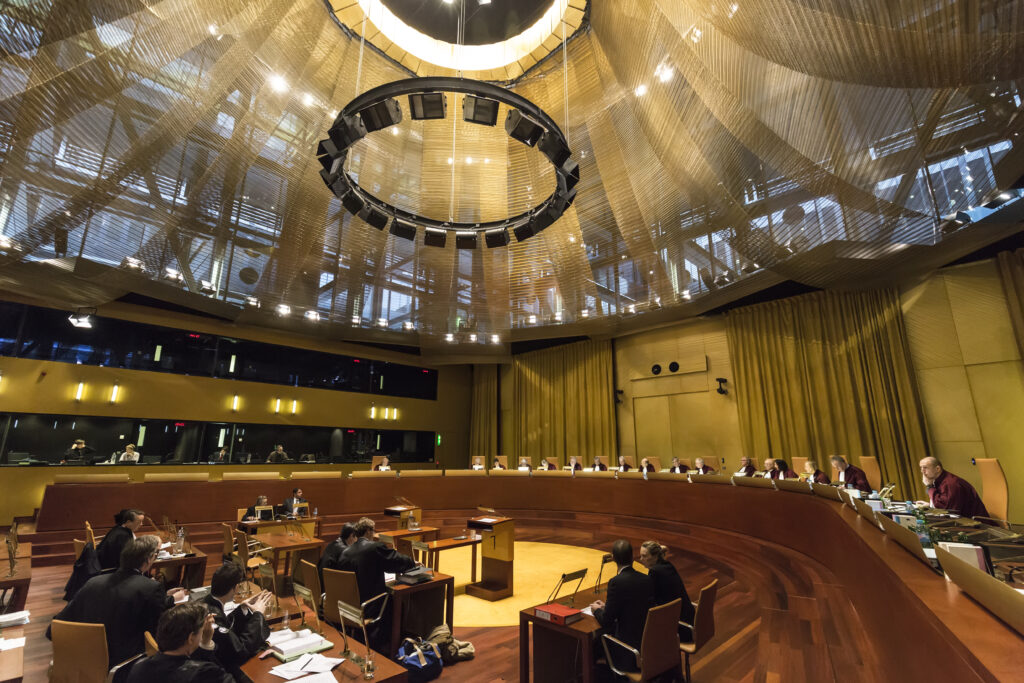Rule of law is “an integral part of the identity of the European Union”, the judges held
Poland’s highly contested 2019 reform of the judiciary is not in line with fundamental principles of EU law, the Court of Justice of the European Union held in a landmark ruling issued on Monday (5 June 2023). The governing PiS party of Prime Minister Mateusz Morawiecki had adopted a reform regarding the organisation of the courts, including the country’s Supreme Court, which stirred criticism from other EU countries. The European Commission started an infringement proceeding against Poland and took the country to the CJEU for failing to fulfil obligations under European law.
On of the contested measures was the new disciplinary chamber of the Polish Supreme Court, whose independence and impartiality the Commission said were not guaranteed. The Commission also argued that the independence of judges in Poland was in jeopardy and that the reform prohibited any national court from reviewing compliance with the EU requirements relating to an independent and impartial tribunal previously established by law and establishes such a review as a disciplinary offence. Finally, the Commission maintained that, by requiring judges to provide information relating to past activities in associations, foundations and or political parties, and by planning to publish that information, the Polish law infringed the right to respect for private life and the right to protection of personal data.
In October 2021, Poland was ordered to pay the Commission a daily penalty of €1,000,000 for failing to uphold and implement interim measures ordered by the CJEU in July 2021. By the order of the vice-president of the Court of 21 April 2023, the amount of the daily penalty was reduced to €500,000. Although Poland has refused to pay the penalty, the CJEU now ruled that they would stop. However, the government was still under the obligation to pay the penalty, which add up to more than €500 million.
Unsurprisingly, the high court upheld the Commission’s lawsuit. It confirmed that in exercising their power concerning the organisation of justice, member states must comply with obligations arising from EU law. They are notably required to ensure that, in the light of the value of the rule of law, any regression of their laws on the organisation of justice is prevented, by refraining from adopting rules which would undermine the independence of judges. That fundamental value, which according to the EU’s top court “is an integral part of the identity of the European Union”, is given concrete expression in legally binding obligations, which the member states must not disregard by relying on national provisions or case-law, including constitutional provisions and case-law.

The court also reiterates its assessment that the Disciplinary Chamber of the Supreme Court of Poland does not satisfy the requirement of independence and impartiality. ‘It infers from this that the mere prospect, for judges called upon to apply EU law, of running the risk that such a body may rule on matters relating to their status and the performance of their duties, in particular by authorising criminal proceedings against them or their arrest or by adopting decisions relating to essential aspects of the employment, social security or retirement regimes applicable to them, is liable to affect their independence.”
The provisions in the Polish law, the CJEU held, were so broad and imprecise that they were incompatible with the right of access to an independent and impartial tribunal. Moreover, the EU judges ruled that the Polish reform law was “liable to contribute to weakening even further the fundamental right to effective judicial protection enshrined in EU law.”
Finally, according to the Court, the provisions requiring Polish judges to submit a written declaration indicating any membership of an association, non-profit foundation or political party infringe the fundamental rights of those judges with respect to the protection of personal data and respect for private life. “The placing online of information relating to past membership of a political party is not, in the present case, appropriate for attaining the alleged objective of strengthening the impartiality of judges”, said the court.






